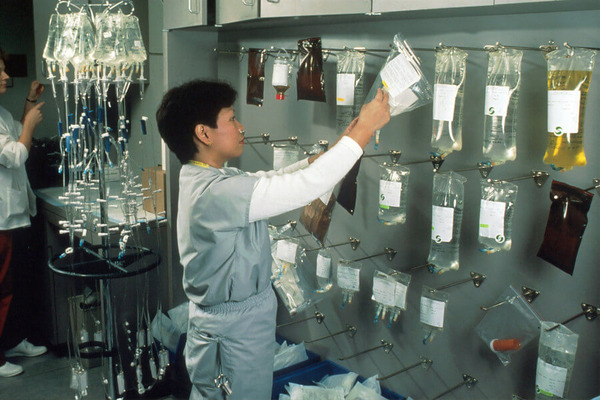No products in the cart.
Fitness & Wellness
Liver Cancer: Can It Be Inherited?
In some Sub-Saharan and Southeast Asian nations, liver cancer is the most frequent type of cancer. We’ll go through some questions on the signs, causes, and therapies for liver cancer, as well as how genetics can play a role in the disease’s progression.
How do I know if I have liver cancer?

Hepatocellular carcinomas (HCC) and intrahepatic cholangiocarcinomas are the most common types of liver cancer. HCC is the most prevalent type of liver cancer, and it can manifest as a single tumour or a cluster of smaller tumours throughout the liver. Intrahepatic cholangiocarcinoma is a type of liver cancer that affects the bile ducts, which transport bile to the gallbladder. It accounts for 10-20% of all liver cancer diagnoses. Unexpected weight loss, nausea, vomiting, stomach pain, jaundice, and exhaustion are all symptoms of liver cancer. In individuals with liver illnesses such as hepatitis or cirrhosis, symptoms of liver cancer include feeling worse than usual and abnormalities in liver function tests (liver scarring).
What causes liver cancer?
Changes (mutations) in our DNA disrupt the proper functioning of genes that control cell division and growth, resulting in cancer. A cell can become malignant and divide uncontrollably if enough mutations in these regulatory genes occur. Chronic hepatitis B virus (HBV) or hepatitis C virus (HCV) infection has been linked to an increased risk of liver cancer, as viral DNA insertion into the genome can change gene activity and cell growth and division regulation. Mould-produced toxins, known as aflatoxins, can alter the DNA of liver cells, and long-term exposure to these compounds can lead to liver cancer. Cirrhosis, diabetes, and high alcohol consumption are additional risk factors for liver cancer.
How is screening for this cancer done?
Currently, screening for liver cancer is only indicated for people who have risk factors for the condition. Ultrasounds and alpha-fetoprotein (AFP) blood tests may be used as screening tests for high-risk patients every six months.
How can cancer be treated?

Treatment for liver cancer is determined by several criteria, including the tumour’s stage, the patient’s age, and other medical conditions. Tumour removal and liver transplant are two surgical options. Localized treatments, such as chemoembolization, offer another choice for directing chemotherapy medications to cancer cells in the liver. In addition, advanced cases of liver cancer are treated with radiation therapy, targeted medication therapy, immunotherapy, and/or chemotherapy.
Can this cancer be hereditary?
While some genetic abnormalities raise the lifelong chance of having liver cancer, there are currently no hereditary cancer syndromes that significantly enhance the risk of acquiring liver cancer. Lynch syndrome is linked to a 1-4% lifetime risk of getting bile duct cancer. Still, this risk is only slightly higher than the 1% lifetime risk for liver and bile duct cancer in the general population in the United States.
Hereditary hemochromatosis (HH), a genetic metabolic condition that causes the body to absorb too much iron, is linked to a 20-fold increased risk of liver cancer and affects roughly 1 out of every 300 people. While HH is a hereditary ailment, the recessive method of disease inheritance necessitates an individual to inherit two mutant copies of the HFE gene, one from each parent, to inherit the disorder, making disease inheritance statistically unlikely even when one parent is affected.
Despite the lack of a vital genetic component in liver cancer, a family history of disease risk factors can raise a person’s risk of having the disease. Infections with HBV and HCV, as well as severe alcohol consumption, are all substantial risk factors for liver cancer. HBV and HCV could be passed from mother to kid by blood but not through genes, increasing the risk of infection if the mother was infected before the child was born. Furthermore, an individual’s degree of alcohol consumption may be influenced by a family history of alcohol drinking. In the case of liver cancer, rather than a hereditary cancer syndrome gene mutation, a family history of numerous environmental risk factors can raise the probability of disease development.
Although liver cancer is not hereditary, many other cancers are. The stage of cancer at the time of diagnosis now has a clear correlation with cancer survival rates. Genetic cancer screening tests are used to look for mutations linked to an elevated risk of getting certain cancers that can be handed down from one parent to their child. Importantly, determining the presence of an unfavourable gene mutation allows doctors to customise proactive disease tests for affected patients, allowing for more effective and efficient identification of tumours linked to the mutation.
Learn more about how our DNA test can help you. It’s considered the most advanced DNA test in Malaysia that we can provide, so we’d like to offer you our premium DNA test. You can take advantage of this offer and reap the benefits of getting a DNA test.


